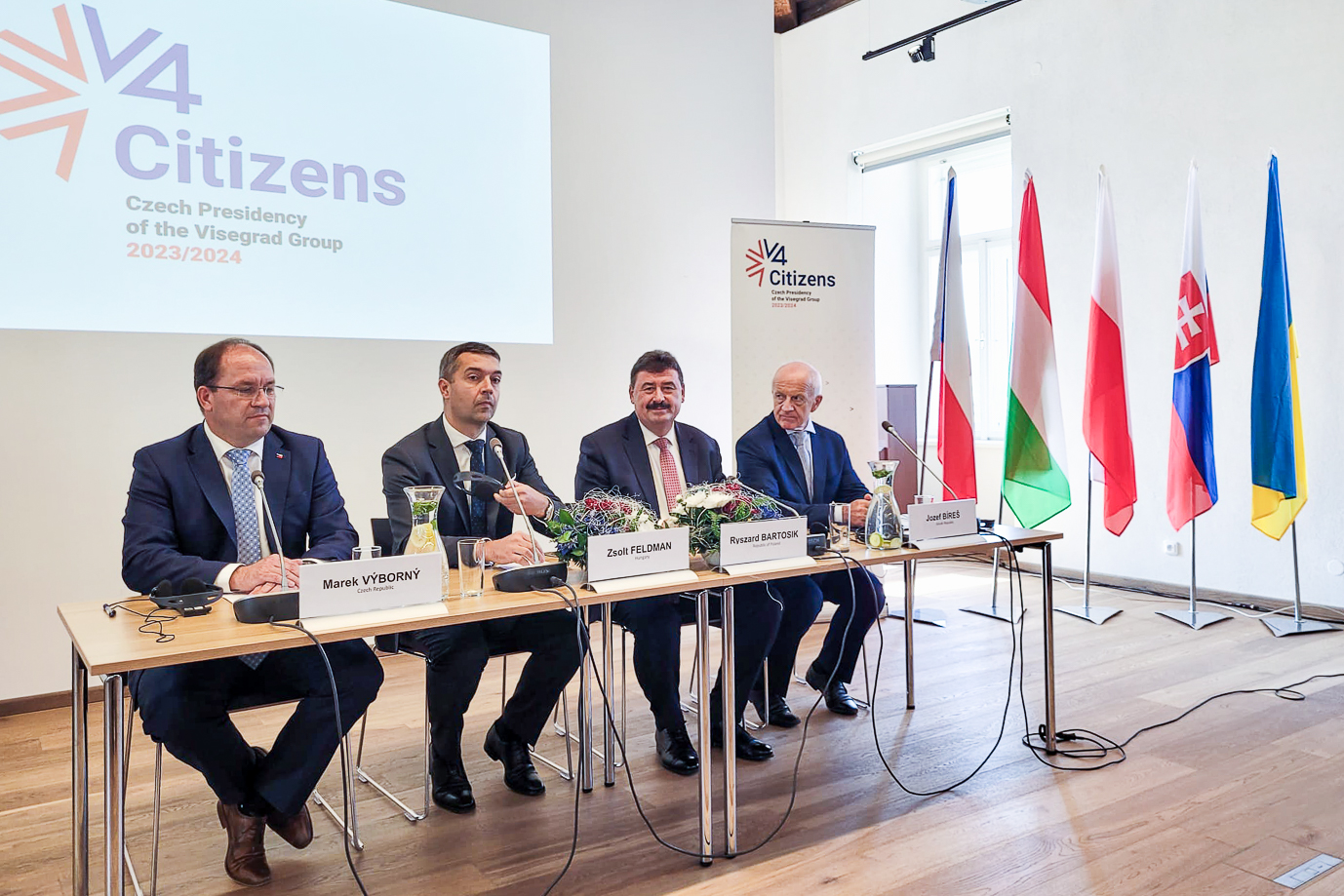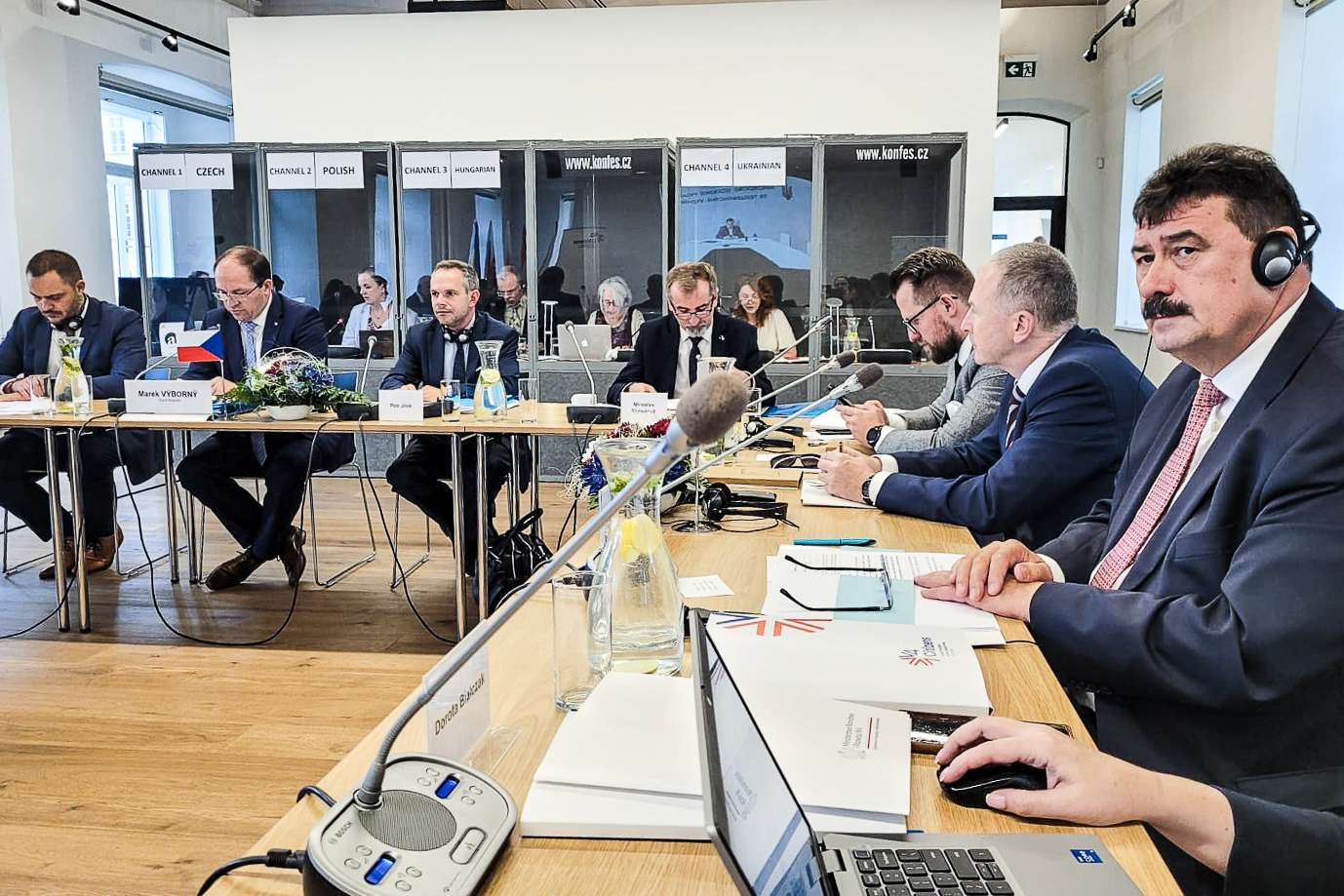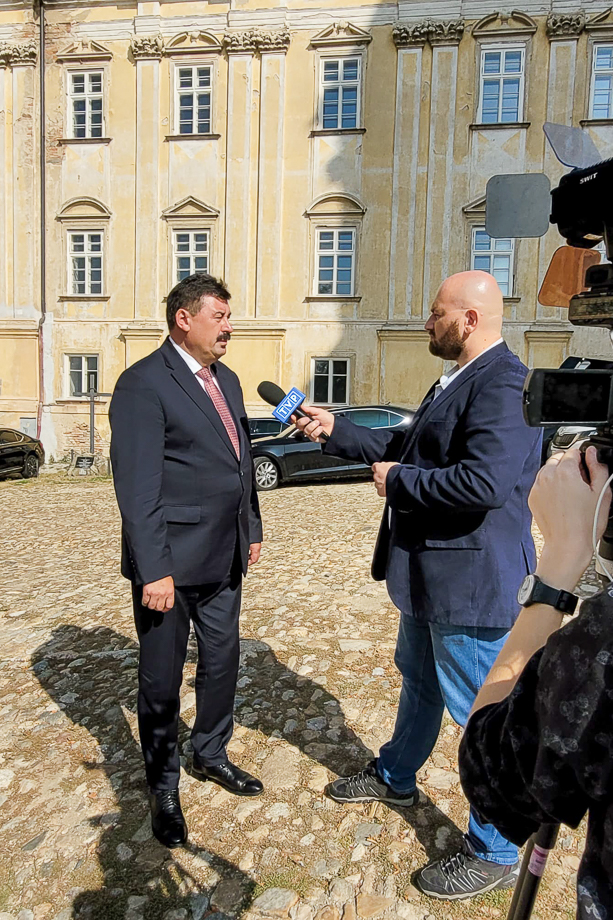Talks between the Visegrad Group and Ukraine
26.09.2023
Secretary of State Ryszard Bartosik participated in the meeting of the Ministers of Agriculture of the Visegrad Group in Znojmo in the Czech Republic. Mr. Mykola Solskyi, Minister of Agrarian Policy and Food of Ukraine, also participated remotely in the debate.

This was first meeting of the Ministers of Agriculture as part of the yearlong Presidency of the Czech Republic in the Visegrad Group, which consists of Poland, the Czech Republic, Slovakia and Hungary. The meeting took place on 25-26 September 2023.
Present challenges
The Ministers of Agriculture of the Visegrad Group stressed that the meeting took place at a very difficult time when the war was waged in Ukraine as a result of the Russian aggression and the imperialist ambitions of the Russian Federation and that the food security issues were particularly important. They stressed together that a dialogue among the countries of our countries and a common search for solutions were needed today more than ever.
The situation on the agricultural markets
Secretary of State Ryszard Bartosik informed that the situation on the cereal market in Poland was difficult.
“We continue to struggle with problems, although an EU ban on the imports of wheat, maize, rapeseed and sunflower seeds was in place from May to 15 September 2023. The storage facilities are still partly filled with last year’s cereals, since farmers were unable to sell their agricultural crops,” Minister Ryszard Bartosik stressed.
He explained that as a result of a political, rather than a substantive, decision of the European Commission to lift the ban, on 15 September 2023 Poland imposed a national ban on the imports of wheat, maize, rapeseed and sunflower seeds, as well as meals and flours from these cereals from Ukraine. Their transit is still allowed.
“The ban on imports did not limit the transit; on the contrary, it contributed to its growth, in accordance with the original assumptions for the concept of solidarity lanes,” Minister Ryszard Bartosik noted.
“The aim of the measures which we took was only to restore the disturbed market balance. We were guided by the feeling of responsibility for the situation in our countries and the fate of our agricultural producers,” the Secretary of State explained.
A need for systemic solutions
The Ministers of the Visegrad Group agreed that there was a need to work out long-term, systemic solutions which would ensure the conditions of fair competition for the farmers in our region.
“At present, the most important issue for Poland is the building of mechanisms for the transport of Ukrainian products through the EU territory to third countries, which would be effective, sustainable and efficient in terms of the volumes of the transported Ukrainian exports,” Minister Ryszard Bartosik said.
The complaint to the WTO
On behalf of the Visegrad Group, the Minister of Agriculture of the Czech Republic called on Ukraine to withdraw its complaint to the World Trade Organisation (WTO) against Poland, Slovakia and Hungary and to seek solutions through a dialogue and consultations.
About forestry and forest management
During the meeting, the topics of discussion also included the growing fragmentation of policies on forests at EU level and the need to strengthen the coherence and synergies in this area.
Minister Ryszard Bartosik stressed that forest management was a long-term process which should be based on multiannual experiences and practices of the Member States.
“During the implementation of the EU initiatives on forestry, the diversified national conditions need to be considered and the Commission needs to take into account the opinions presented by the EU Member States. Forestry needs to be treated in a specific manner in EU policy,” Minister Ryszard Bartosik said.
The Minister also pointed out that forestry and forest management should remain within the exclusive competence of the EU Member States.
The Ministers of Agriculture of the Visegrad Group agreed that any initiatives on forestry should be developed using a bottom-up approach, in accordance with the principle of subsidiarity.



